Brush up on these 7 MLB rain delay rules
by Fred Hofstetter on April 14, 2020As we endure the strangest baseball delay of my adult lifetime, read up on the the rules of MLB baseball’s more conventional rain delay.
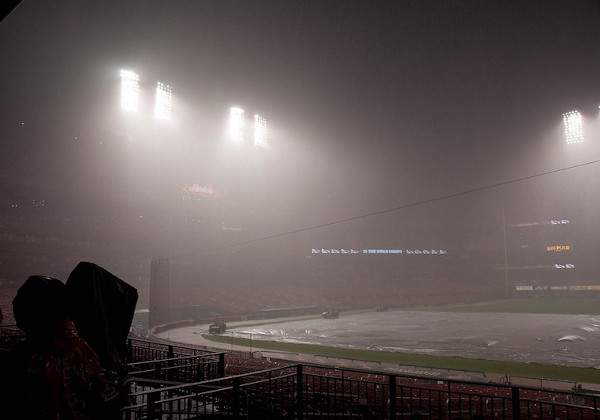
A reminder of MLB’s rain delay rules. Photo via Dave Herholz on Flickr
One of baseball’s quirks is the rain delay. I’ve often been forced to field questions about rain delays. Why does rain cancel baseball? Why can’t they play in the rain? They play football and soccer in the rain. What gives?
I don’t know. It gets really slippery. It’s hard to hold the ball. Or the bat. Being wet in heavy clothes is really uncomfortable. Flopping around in the mud can be a riot. But with enough rain, the game becomes a mess.
Anyways, it can’t really be done. So Major League Baseball has to be prepared. And they’re armed with all sorts of formal legalese to help inform the decision making.
The 2019 Official Baseball Rules linked here measure 155 pages with appendices. In the spirit of unnecessary formality: herein follows dictums Clubs shalt follow in the rapid and voluminous descent of water upon the field of play.
1. If rain postpones a game after five innings, results are kept and it’s suspended.
The term MLB uses is “regulation game.” From rule 7.01 entitled “Regulation Games”:
(c) If a game is called, it is a regulation game:
(1) If five innings have been completed;
(2) If the home team has scored more runs in four or four and a fraction half-innings than the visiting team has scored in five completed half-innings;
(3) If the home team scores one or more runs in its half of the fifth inning to tie the score
Once five innings are in the books (sometimes 4.5) it’s a regulation game and it’s getting finished at some point. And there are all sorts of rules about when and where.
2. If rain postpones a game before five innings, it’s “No Game.”
**UPDATE 7/24/2020** Apparently this rule does not apply in 2020. This season games that don’t reach the 15-out threshold will be continued where they left off ASAP rather than restarted from the beginning. The idea is to limit the amount of time players/umps are on the field and minimize COVID risk.
So if it starts raining in the 3rd inning and the delay lasts so long the umpire-in-chief decides to call it, the game isn’t a regulation game yet and therefore not an official game:
(e) If a game is postponed or otherwise called before it has become a regulation game, the umpire-in-chief shall declare it “No Game,” unless the game is called pursuant to Rules 7.02(a)(3) or 7.02(a)(4), which shall be a suspended game at any time after it starts.
As a rainstorm rolls in, a team who’s getting their rear ends served to them are incentivized to drag their feet a bit, play with the rosin bag and kill as much time as possible to avoid securing a “regulation game.”
Those 7.02 rules pertain largely to lighting malfunctions or darkness (in lieu of lighting for whatever reason). Except…
3. Rain-related malfunctions may result in a suspended game (not “No Game”) regardless of how many innings were completed.
An exception: if a retractable roof fails or there is a catastrophic tarp malfunction during rain, the game may be called as a suspended game even if not “regulation”:
(a) A game shall become a suspended game that must be completed at a future date if the game is terminated for any of the following reasons:
…
(3) Light failure, malfunction of, or unintentional operator error in employing, a mechanical or field device or equipment under the control of the home Club (e.g., a retractable roof, a tarpaulin, or other water removal equipment);
So if the gears on Miller Park’s retractable roof fused and the tarp had a big ‘ol hole in it, the umpire-in-chief could regard the game as suspended rather than wiped out completely even after only a single inning.
4. There is no formal limit on how long a rain delay can last.
Nothing in the rules dictates a maximum length of time for a rain delay before a game is postponed or suspended. Nor is there a rule for “how much” rain cancels a game automatically. It’s a judgment call.
In May of 2019 a Brooklyn councilman, apparently experiencing a fit of inspired boredom after a rash of New York rainouts, penned Major League Baseball commissioner Rob Manfred to lobby for a policy to make rain delays more fair to fans, according to USA Today:
Brannan proposed that “all MLB games should start within an hour of the scheduled start time and no games should be postponed for more than one hour. Otherwise, umpires should call the game and prevent loyal fans from lingering endlessly,” according to Tuesday’s letter provided by the councilman’s office to USA TODAY Sports.
Brennan also recommend entitling fans to rain checks for a future game after the delay reached a certain length of time.
MLB does have a provision in regard to rain checks:
(f) A League President may determine whether rain checks will be honored for any regulation or suspended game that has progressed to or beyond a point of play described in Rule 7.01(c).
Rain delays as long as 2-3 hours can be a little much. But there’s really nothing to stop an umpire-in-chief from bringing players back after 4 hours of waiting. Ultimately it’s left to his discretion to make a final call.
If you’re wondering, the longest rain delay in MLB history was an epic 7 hour, 23 minute rain delay on August 12, 1990 in a game between the Chicago White Sox and Texas Rangers.
5. If a team refuses to take the field during heavy rain, it could wind up as a forfeit.
As far as I know this has never happened. But we’ve seen some humdinger ump shows and I wouldn’t put it past a grumpy crew chief.
The game isn’t called until the umpire-in-chief says so. Let’s say you’re a home team who’s been riling up the crew chief with an ongoing strike zone beef. Trailing by a handful of runs in the 4th inning. It starts pouring and the crew chief decides he’s not eager to call it quits and let the home team off the hook.
According to rule 7.03 entitled Forfeited Games:
(a) A game may be forfeited to the opposing team when a team:
…
(2) Employs tactics palpably designed to delay or shorten the game;(3) Refuses to continue play during a game unless the game has been suspended or terminated by the umpire-in-chief;
Far-fetched? For sure. But baseball is goofy and the outliers are what make it so much fun.
6. There are different rules in the playoffs.
There’s no calling “No Game” in the playoffs. The rules explicitly dictate a “regulation game” isn’t even a thing in regard to the playoffs. The game is going to be finished and there’s no wiggle room:
(c) A suspended game shall be resumed at the exact point of suspension of the original game. The completion of a suspended game is a continuation of the original game. The lineup and batting order of both teams shall be exactly the same as the lineup and batting order at the moment of suspension, subject to the rules governing substitution. Any player may be replaced by a player who had not been in the game prior to the suspension. No player removed before the suspension may be returned to the lineup.
So even if it starts pouring rain 3 pitches in, those 3 pitches count and you have to pick up the game right where it left off with the 4th pitch.
7. Any Mike Hargrove AB counts as a rain delay.
There is a former ballplayer called The Human Rain Delay.” Mike Hargrove, a 1B/OF who put together a really nice career between two extended stints with the Texas Rangers and Cleveland Indians from 1974-1985.
Hargrove was such a putz in the batter’s box with his rigid multifidgeted routine he earned one of the better nicknames in baseball history. Every time he steps up to the plate, it’s time to go grab another dog and a beer. Because it’s basically a stoppage of play:
Hargrove, who played back in the heyday before baseball died because everyone started putzing around grabbing their crotches, fidgeting, striking out and walking constantly.
So there you go. Did I miss anything? Heckle me on Twitter about it if you like.

The latest articles
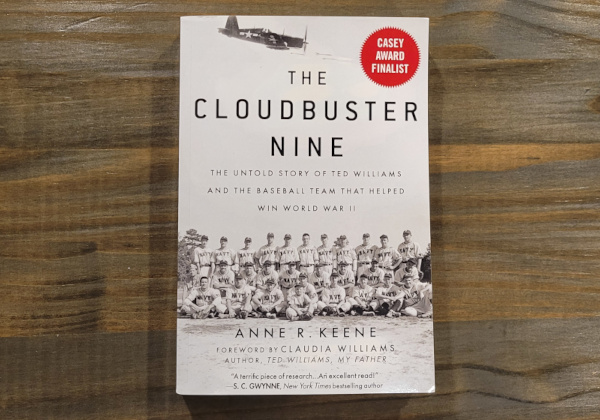
Book Review: The Cloudbuster Nine - by Anne R. Keene
by Fred Hofstetter on January 30, 2024Keene's comprehensive book tells several stories behind the V-5 Pre-Flight School in Chapel Hill, North Carolina: home to one of the rarest, greatest baseball teams in American history.
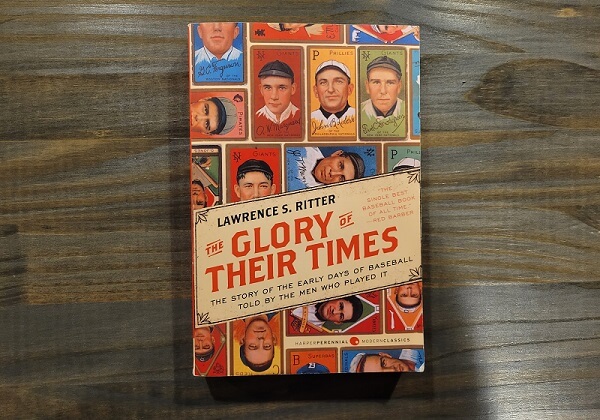
Book Review: The Glory of Their Times
by Fred Hofstetter on February 11, 2023There's good reason why The Glory of Their Times appears on every "best baseball book of all time" list you'll find anywhere.
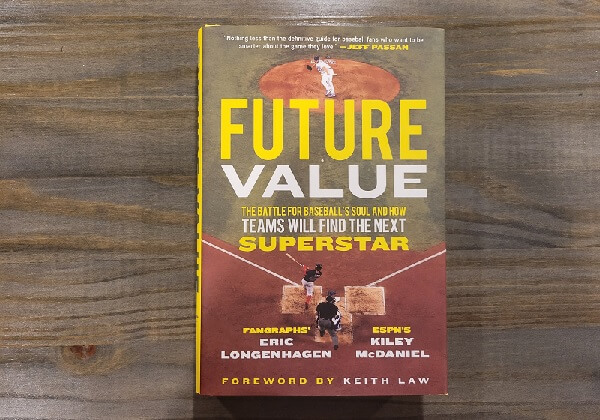
Book Review: Future Value - Eric Longenhagen & Kiley McDaniel
by Fred Hofstetter on January 8, 2023Discover how amateur and pro baseball scouting is done, how departments are built, and how organizations find talent in Future Value.
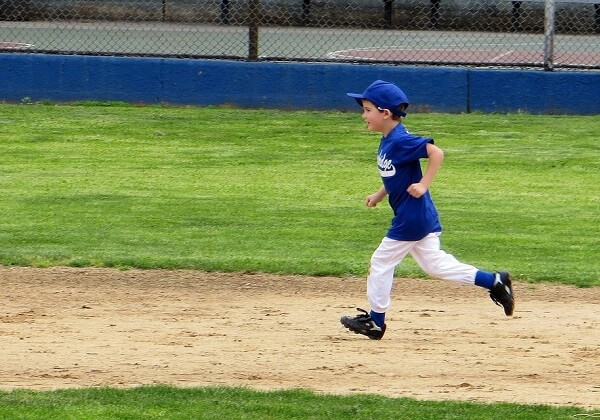
Baseball players wear hats because wearing a hat is correct
by Fred Hofstetter on April 9, 2022Practicality explains why baseball players may want to wear a billed cap. But why does every player always wear a hat? Because it’s the right thing to do.
